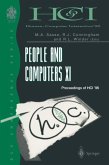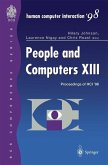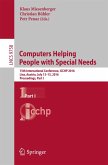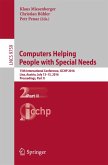Most organisations try to protect their systems from unauthorised access, usually through passwords. Considerable resources are spent designing secure authentication mechanisms, but the number of security breaches and problems is still increasing (DeAlvare, 1990; Gordon, 1995; Hitchings, 1995). Unauthorised access to systems, and resulting theft of information or misuse of the system, is usually due to hackers "cracking" user passwords, or obtaining them through social engineering. System security, unlike other fields of system development, has to date been regarded as an entirely technical issue - little research has been done on usability or human factors related to use of security mechanisms. Hitchings (1995) concludes that this narrow perspective has produced security mechanisms which are much less effective than they are generally thought to be. Davis & Price (1987) point out that, since security is designed, implemented, used and breached by people, human factors should be considered in the design of security mechanism. It seems that currently hackers pay more attention to human factors than security designers do. The technique of social engineering, for instanc- obtaining passwords by deception and persuasion- exploits users' lack of security awareness. Hitchings (1995) also suggests that organisational factors ought to be considered when assessing security systems. The aim of the study described in this paper was to identify usability and organisational factors which affect the use of passwords. The following section provides a brief overview of authentication systems along with usability and organisational issues which have been identified to date. 1.
Dieser Download kann aus rechtlichen Gründen nur mit Rechnungsadresse in A, B, BG, CY, CZ, D, DK, EW, E, FIN, F, GR, HR, H, IRL, I, LT, L, LR, M, NL, PL, P, R, S, SLO, SK ausgeliefert werden.









